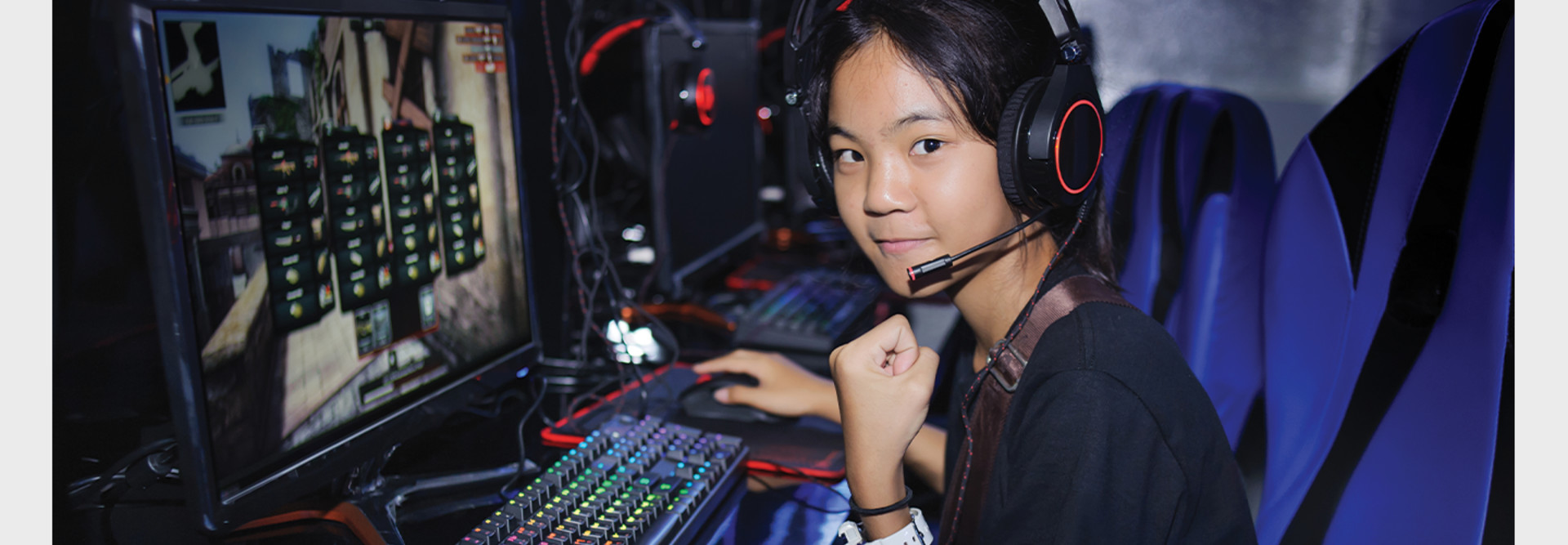State-Sanctioned Esports Events Are on the Rise. Here’s Why It Matters
Competitive esports leagues exploded in K–12 schools in recent years. The esports market became a $1 billion industry this year. Colleges dole out more than $17 million in esports scholarships for students.
More people watched the 2019 North America League of Legends World Final than the Super Bowl, according to CNBC.
Amid all that growth, another significant trend emerged: More state high school athletic associations are sanctioning esports programs.
In 2017, high school state athletic associations in Alaska and Connecticut sanctioned esports as a state championship event. Today, up to 17 states have followed suit, including California in November.
Ten other states hold statewide esports competitions, even though the events are not yet sanctioned by their respective athletic associations. This means a little more than half of the country, either officially or unofficially, has some kind of statewide high school competition.
MORE FROM EDTECH: Esports clubs expand learning opportunities for K–12 players.
Esports Teach Digital Citizenship
Getting state sanctioning for esports is important for the same reasons it’s important for traditional school athletics programs and clubs: Esports needs some regulation. Guidelines could be developed, for example, concerning the playing of first-person shooter games. Statewide and district oversight can also help to ensure the content students are exposed to is appropriate.
Regulators can reinforce skills such as digital citizenship and sportsmanship — issues that aren’t really part of gaming right now but should be. Having a competitive esports organization or league can also underscore lessons in digital literacy, which every student needs to learn.
MORE FROM EDTECH: How K–12 schools can start an esports program.
The Power of Validation and Inclusion
State athletic associations’ embrace of esports also validates the programs as a meaningful investment and a good use of students’ time.
Competitive sports reinforce social-emotional learning, which is to say students learn to build a community, engage with it and develop with the group. Validation of students’ interest in gaming can supercharge that development.
Too often, society typecasts gamers as nerds. Decades ago, old-school parents and educators derided video games as a waste of time, chiding children for not playing outside.
But that dated mindset no longer holds true.
State sanctioning puts esports on the same level as other school-sponsored sports and activities. To that end, officials can also trumpet esports teams’ successes as loudly as wins for other sports and clubs. This will encourage more student interaction around esports and reduce any stigma.
I spent years as a head wrestling coach, and I know from personal experience how important it is to foster a sense of belonging among students and how well sports support that effort. My mind is blown every time I go to a high school esports tournament.
Students who haven’t had opportunities to compete for their school — and often students who have physical limitations — are there playing along with everyone else. In these tournaments, physical ability doesn’t matter the way it does in basketball and football.
These students embody how competitive esports are an outstanding way to better engage a broader swath of students for a simple goal: to have fun, team-build with their peers and expand their horizons.
This article is part of the "Connect IT: Bridging the Gap Between Education and Technology" series. Please join the discussion on Twitter by using the #ConnectIT hashtag.





![[title]Connect IT: Bridging the Gap Between Education and Technology [title]Connect IT: Bridging the Gap Between Education and Technology](http://www.edtechmagazine.com/k12/sites/default/files/articles/2014/05/connectit.jpg)




